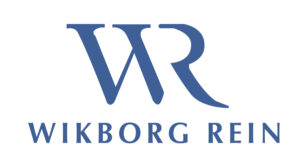In the last three years Brazil has gained world attention due to its potential for high economic growth. This status, combined with one of the highest interest rates in the world, has attracted both productive and speculative investment.

Partner
Vieira Rezende Barbosa e Guerreiro Advogados
Inbound investment has affected the Brazilian currency, which has appreciated rapidly. This situation has been both positive and negative for Brazil.
The appreciation of the Brazilian currency generates losses for exporting companies, which were substantially affected by the global financial crisis. On the other hand, the incoming funds for investment in productive sectors and infrastructure projects have been very welcome.
In these circumstances the Brazilian government has shown itself to be ill-prepared for the huge inflow of funds. Motivated by a desire to protect the Brazilian currency and local business, the Ministry of Economy has increased the taxes paid on inflowing foreign investment.
The tax on financial transactions (IOF) is charged on exchange operations and is used to regulate the market. The government initially raised the rate to 2% on several types of transaction, hitting not only speculative capital but also investments in the productive sectors.
This measure was not successful, but instead of reviewing the strategy, the Brazilian government increased the rate on two more occasions, reaching 6%.
A sector that was substantially affected is foreign private equity investments, which normally entered Brazil through specific funds called Fundo de Investimento em Participações (FIP).
This is despite the fact that FIPs are widely viewed as positive. FIPs generally invest in companies that have good potential for growth or can achieve greater efficiencies through management restructuring. Consequently, inflows of this nature are positive for the country.
Recently the government seems to have noticed that the measures to protect the currency and control speculative capital had not had the desired effect.
The minister of economy suddenly altered his tone and said that foreign investors are very important for Brazilian growth. To encourage investment, the IOF rate was reduced to 0% on the inflow of funds on several transactions, including the following:
- settlement of exchange transactions by foreign investors relating to transfer of resources from abroad for investment in the stock exchange or futures and commodities exchanges, except for certain derivative transactions;
- settlement of exchange transactions by foreign investors on the entry of resources into the country for the acquisition of shares in a public offering registered or exempted from registration with the Securities and Exchange Commission or for the subscription of shares, provided that in both cases the companies are registered for trading on stock exchanges;
- settlement of exchange transactions by foreign investors for the entry of resources into the country, including by means of symbolic exchange transactions for the acquisition of quotas of private equity funds (FIPs), venture funds (FIEEs) and investment funds;
- settlement of symbolic exchange transactions for the inflow of resources through the cancellation of depositary receipts for investment in shares traded on stock exchanges;
- settlement of symbolic exchange operations for the inflow into the country of resources from the migration of regime by the foreign investor from direct investment based on Law 4.131/62 (RDE-IED) to investment in shares traded on stock exchanges (RDE-Portfolio), as regulated by the National Monetary Council;
- settlement of exchange transactions by certain foreign qualified investors for the inflow of funds into the country for the acquisition of bonds or securities issued by companies investing in infrastructure projects; and
- settlement of foreign exchange transactions for the return of funds invested by foreign investors.
Despite the legal uncertainty for foreign investors caused by the ill-considered increases and decreases in the IOF rate, the measures above deserve applause.
The government appears to have realized that it is not commercially prudent to attack investors whom it is trying to attract.
Encouraging exports
Besides the reduction in the IOF rate, the Brazilian government also created an interesting regime to benefit Brazilian exporting companies, and that regime also benefits foreign investors that are setting up export platforms in Brazil.
It is named REINTEGRA and was recently the subject of a decree. The objective of the new rule is to allow the reimbursement of certain tax costs related to items in the supply chain of those companies.
Brazilian industry as a whole has become less competitive over the past few years due to a combination of factors, especially because of the appreciation of the currency and high taxation within the economic chain (from the purchase of basic raw materials to the sale of final manufactured items).
A recent study prepared by a Brazilian industrial federation disclosed that the Brazilian steel is more expensive than steel manufactured in other parts of the world only because of the high amount of taxes levied on the production chain.
Based on that and on other representations made by industry, the government created REINTEGRA. The exported items that are included in the programme are listed in an annex to the decree and the amount is calculated as 3% of revenues derived from the export of goods. Companies can request a refund in cash based on the correctly calculated amount under the terms established by the Internal Revenue Service (IRS), or to offset against taxes imposed by the IRS.
REINTEGRA is a temporary programme which will be applied to exports made until 31 December 2012.
Rafael de Moraes Amorim is a partner of Vieira Rezende Barbosa e Guerreiro Advogados, a law firm that is in alliance with Wikborg Rein

1902 Hong Kong New World Tower,
300 Huai Hai Middle Road, Shanghai
Postal code: 200021
Tel: +86 21 6339 0101
Fax: +86 21 6339 0606
E-mail:
gsv@wrco.com.cn
www.wr.no





















